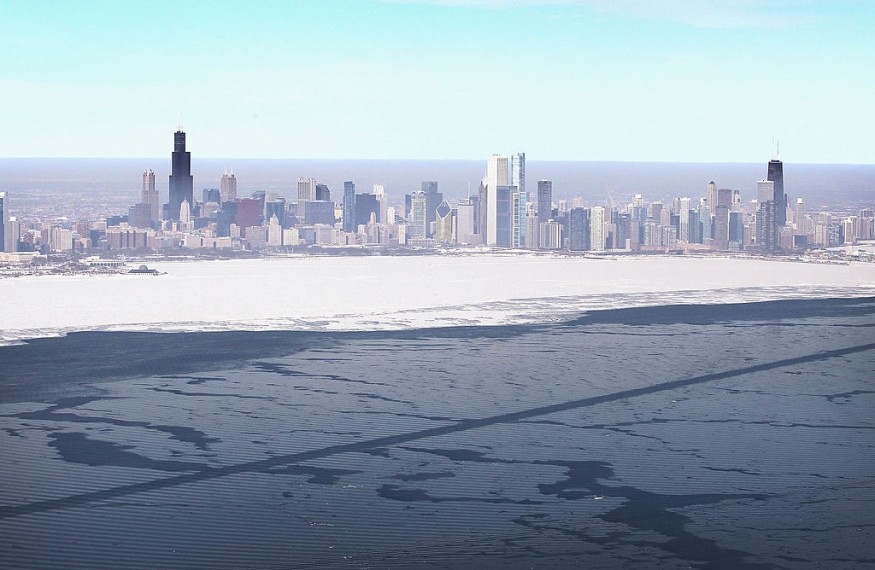A group of scientists from the United States and Canada collected samples from the Great Lakes during the winter to better understand global warming and its effect on the freshwater ecosystem.
Also called the Great Lakes of North America or the Laurentian Great Lakes, the Great Lakes is a body of water interconnected by large freshwater lakes between the Canada and United States borders.
It is part of a collective campaign across all five lakes namely: Lake Michigan, Lake Huron, Lake Erie, Lake Ontario, and Lake Superior.
These lakes are considered to be the largest freshwater ecosystem on Earth.
The campaign is called the winter grab.
The scientists are determining how deep the snow is before they make a hole and insert their instruments into the waters to study it.
The winter grab campaign is the first of its kind as scientists normally wait until after the winter when the lakes are free of ice sheets.
The campaign has been driven by the heating effects of climate change and global warming over the past several decades, leading to the decrease of ice coverage in the Great Lakes.
Although the fieldwork part of the campaign is done, the scientists would still need to do an analysis of the collected samples from the lakes.
The Great Lakes of North America

Important to millions of people, the Great Lakes account for 20% of Earth's surface freshwater equivalent to approximately 6 quadrillion gallons, as per the Denver Channel.
Situated in the Canadian-US borders, the Great Lakes is comparatively bigger than the entire UK landscape.
According to the National Wildlife Federation (NWF), the Great Lakes of North America are also crucial sources for drinking water, irrigation, and transportation.
The NWF added that it is also a site for recreational opportunities, including fishing, hunting, and boating.
However, the water level in the Laurentian Great Lakes since 1860 has fluctuated and surface water temperatures have slightly increased since 1995 due to climate change and global warming, according to the United States Environmental Protection Agency,
Winter Grab Campaign
Dozens of US and Canadian scientists participated in the rare winter grab campaign throughout the week.
Some of the scientists belong to the Cooperative Institute for Research at the University of Michigan.
Previously, most scientific fieldwork in the lakes was held between May and October.
However, climate change is forcing scientists to urgently sample and collect data from the Great Lakes since it will further their understanding of the correlation between global warming and changes in the freshwater ecosystem.
Pollution in the Great Lakes and US Policies
Pollution in the Great Lakes is increasing as plastic materials, sewage waste, and chemicals such as mercury have accumulated over the years.
Still, efforts are being made to protect and preserve the lakes.
On Thursday, Feb. 18, White House officials reportedly stated the US government would provide $1 billion worth of funds for the "Great Lakes Restoration" restoration program, a cleanup effort for the Great Lakes, as per NBC News.
The funds will come from US President Joe Biden's $1.2 trillion infrastructure plan-known as the bipartisan infrastructure package.
Specifically, the cleanup operation on the Great Lakes will focus on sterilizing toxin-contaminated industrial harbors and tributaries.
© 2025 NatureWorldNews.com All rights reserved. Do not reproduce without permission.





